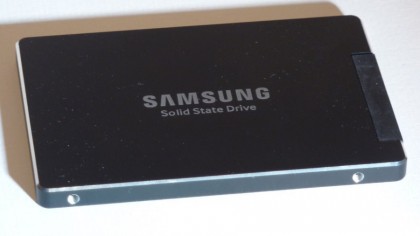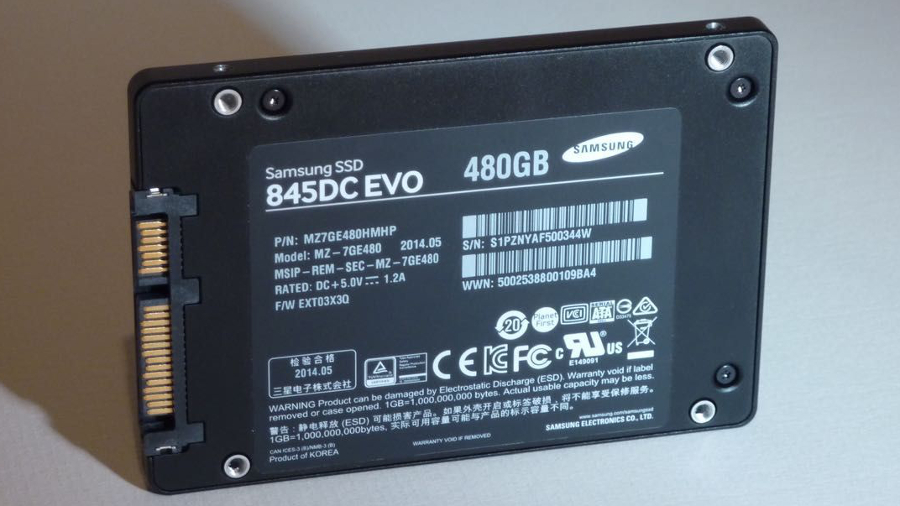Why you can trust TechRadar
As the Samsung 845DC EVO is an enterprise drive, it has been designed with maximum lifespan in mind, despite being built with TLC NAND. SSD reliability can be measured in a number of ways, but total bytes written (TBW) is now the standard figure provided by most manufacturers. With most SSDs this doubles with each capacity increase.
The 240GB 845DC EVO model is rated for a respectable 150TB of writes, the 480GB lasts for a whopping 300TB, while the 960GB model lasts for a truly staggering 600TB.
That's a lot of use. Taking the 480GB model as an example, you get 60TB of writes for each year of the five-year warranty, which equates to 164.38GB of writes, every single day. With the 845DC EVO installed in your PC as an operating system disk at home, you'd find it very hard to reach that limit with "normal" daily usage.
Those limits will also be hard to reach in the majority of scenarios where the 845DC EVO is used in a server. Most servers are about sending data to clients rather than writing data constantly. Even the types of usage from a heavily loaded file server or database might prove the exception rather than the rule, when dealing with a single SSD.
Performance
Samsung sent us a pair of 480GB 845DC EVO drives, so we tested them in both single and RAID 0 configurations, using all the usual software.
CrystalDiskMark results matched Samsung's claims for sequential reads, hitting 543MB/sec. Writes levelled off at 438MB/sec. With the drives in RAID 0, these speeds roughly doubled, as expected, with 1117 MB/sec read and 873MB/sec write speeds.

Random 4K QD32 read speeds hit 82,048 IOPS, slightly lower than Samsung's claim, but within a wide margin of error. With the two drives in RAID 0, this went up to 144,640. QD32 write speeds were 320 MB/sec, in excess of Samsung's claims.
AS SSD is a tougher test, since it's a tool which uses mostly incompressible data. In this benchmark the results mostly tallied with the CrystalDiskMark scores, with 522MB/sec sequential read speeds and 437MB/sec write. Read access times were 0.043ms reading and 0.035ms writing.
The scores place the 845DC EVO in the top segment for reading, but roughly around the middle of SSD performance charts for writing. Other firms' drives will outperform it on both fronts, but it's still a fast drive.
Pricing
One final note on the pricing – it's disappointingly high, with the 480GB version pitched at about £340 (around $530, AU$630), as we mentioned at the beginning of this review.
TLC flash is supposed to be cheaper to produce, but it seems these savings are not being passed on to the consumer. This is typical of many enterprise IT products, which are less price sensitive than off-the-shelf consumer drives.
